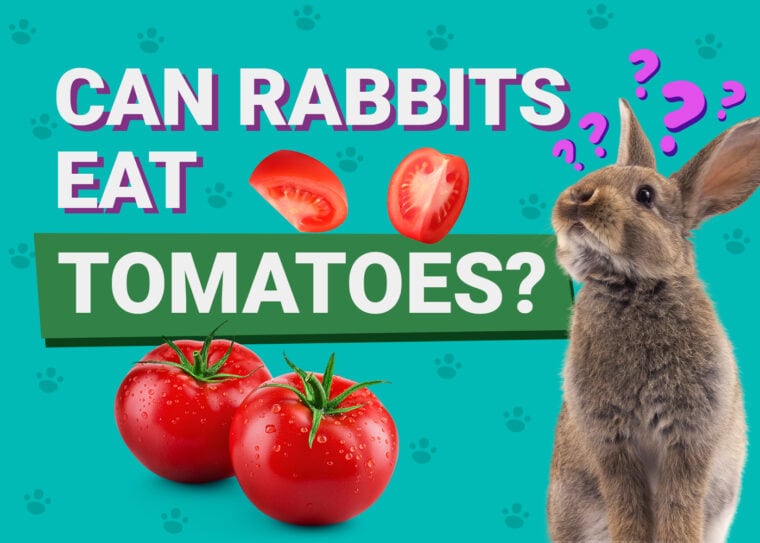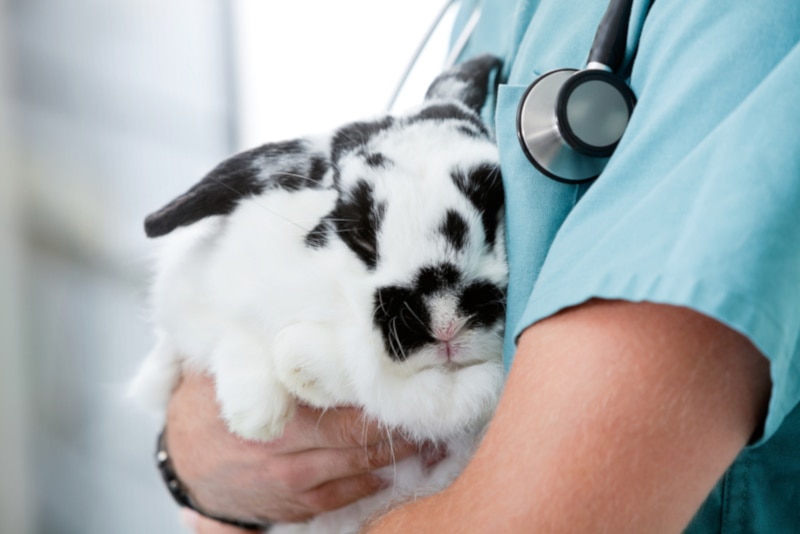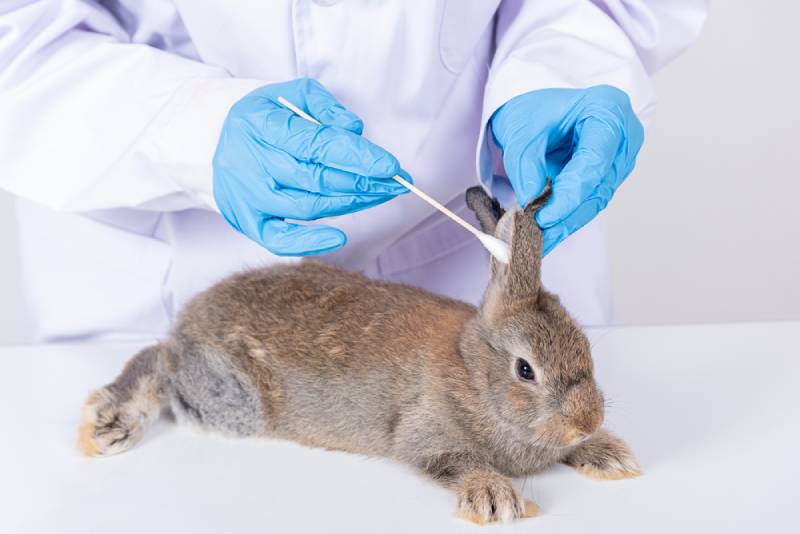
While hay should make up most of your rabbit’s diet, fruits and vegetables can boost your pet’s nutritional intake and support healthy growth. If you want to add the latter to your bunny’s diet, tomatoes are an obvious choice.
If you’re wondering if you can offer tomatoes to your rabbit as treats, the answer is yes. However, a few caveats exist that are worth knowing before you give some to your bunny.
Nutritional Value of Tomatoes
Let’s start with some numbers. A 100-gram serving of your average raw red, ripe tomato contains a mere 18 calories, of which roughly 94.5 grams is water. It has less than 1 gram of protein and fat. Its carb content is 3.89 grams. Tomatoes also have 2.63 grams of sugar. Their fiber content is only 1.2 grams.
These figures increase significantly with sun-dried tomatoes. For example, a 100-gram serving contains a whopping 258 calories and only 14.6 grams of water. The sugar content also skyrockets to 37.6 grams. A slight increase can also be observed in 100-gram canned products, having 32 calories with 89.4 grams water and 4.4 grams sugar, along with an unknown number of chemicals and preservatives. Clearly, raw tomatoes are the way to go. But there’s more to the story.

From the Garden to the Table
Rabbits love fresh greens. You should give your pet a handful twice daily. Good choices include arugula, cabbage, and kale. The same recommendation doesn’t extend to the rest of the tomato plant, including its stems and leaves. Both tomato stems and leaves contain two chemicals that are toxic to rabbits—and horses, cats, and dogs.
Solanine is found in plants of the nightshade family, like potatoes and tomatoes. This chemical is a product of evolution, proffering natural protection against pests. Interestingly, the content is highest in the green parts of the plant that help it conduct photosynthesis and bear fruit. Green potatoes and tomatoes contain solanine, but the amount decreases as the fruits mature. Plants don’t need this defense anymore since animals can now safely disperse the seeds.
The other toxin is tomatine. As the name suggests, it’s found in tomatoes, it has fungicidal properties, and it can also cause adverse reactions. Signs of poisoning for either of these chemicals include the following:
However, we must stress that the ripe fruit is okay for your bunny to consume in small amounts. Only the plant and green tomatoes pose a risk to your pet.

An Interesting Twist
While rabbits make excellent pets, they are also an important micro-livestock species. After all, rabbits are prolific breeders. Theoretically, a buck and four does could produce up to 3,000 young! The weight of the animals is a critical consideration in this industry.
Scientists have investigated alternative diets for livestock rabbits to optimize weight gain and health. Research has shown some promise with dehydrated tomato pulp and tomato pomace powder. Scientists also reported lower total cholesterol and LDL levels, i.e., the so-called bad cholesterol. The evidence tells us that tomatoes have other health benefits. Does that mean you should give them to your pet daily?
Tomato Tips
The concerns we raised about sugar make tomatoes best as occasional treats instead of a staple part of a rabbit’s diet. While they contain some fiber, they don’t provide significant amounts to meet your bunny’s nutritional needs. An adult rabbit must get 20–25% of fiber from their food. That’s why hay must make up the majority of your pet’s diet. Without enough fiber, a rabbit’s gastrointestinal system simply cannot function efficiently, and excessive sugars or starches will cause an imbalance of their gastrointestinal bacteria and motility.Fiber also serves other needs, like helping to keep the animal’s teeth trimmed.
You should only give your bunny raw, ripe tomatoes. A good rule of thumb is to offer your pet only food that you would eat. Fresh fruits and vegetables are excellent additions to your rabbit’s diet since they contain other nutrients and beneficial ingredients that can support the animal’s good health. You can consider using them as treats or training aids instead of commercial products. However healthy, any treats should represent no more than 10% of your rabbit’s diet.

Final Thoughts
Raw tomatoes offer low-calorie treats for rabbits, as they are jam-packed with nutrients. While not a major source of fiber, they are, nevertheless, nutritious. The only significant concern exists with their sugar content. Therefore, you should limit tomatoes as special treats that you can share with your pet. Hay should make up most of your bunny’s diet, with fresh greens providing additional nutrition.
See Also:








